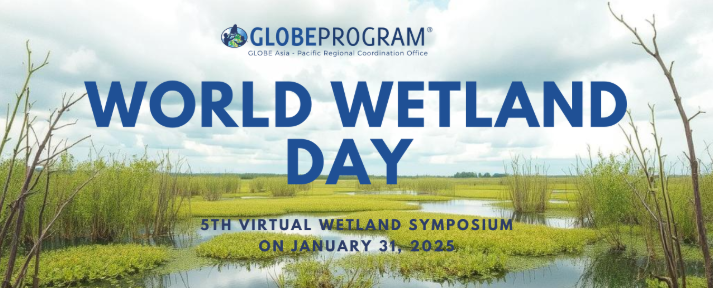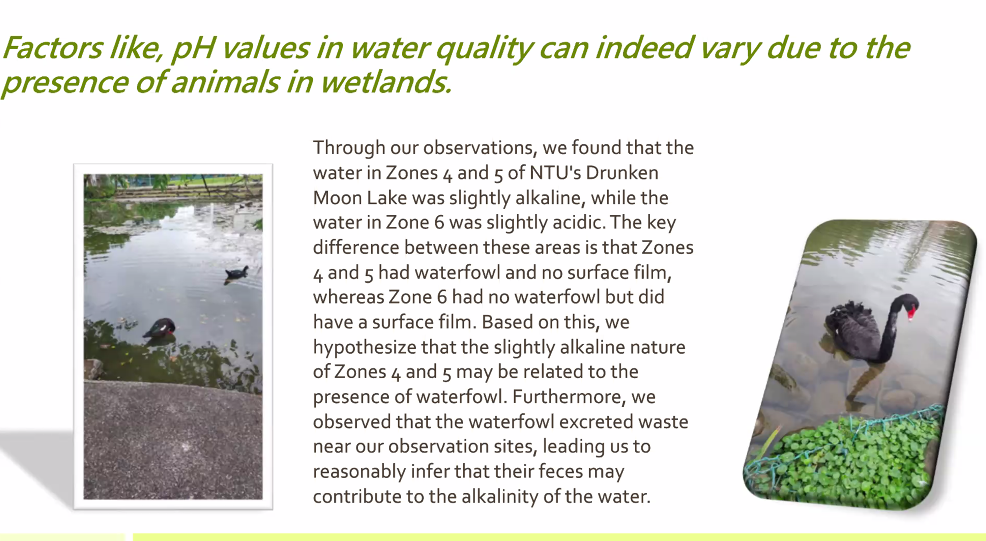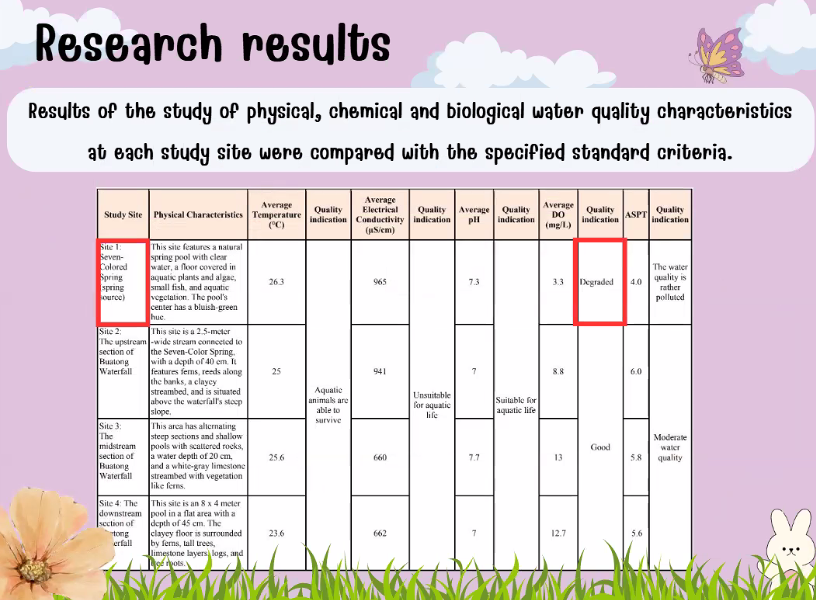Stars and STEM Stories
GLOBE Asia and Pacific: The 5th GLOBE Asia-Pacific Virtual Wetland Symposium Showcases Cutting-Edge Student Research

The 5th GLOBE Asia-Pacific Virtual Wetland Symposium, held 31
January 2025, was a dynamic platform that brought together students,
educators, and environmental advocates from across the region to
showcase scientific research, innovative solutions, and efforts for
protecting wetlands. Eighty-two attendees from eight GLOBE countries
(India, Maldives, Mongolia, Nepal, the Philippines, Sri Lanka, Taiwan
and Thailand) participated in the event, which highlighted the
critical role of wetlands in sustaining biodiversity, maintaining
water quality, and mitigating environmental impacts.
Wetlands are among the most vital yet threatened ecosystems on our planet, and this symposium empowers students and educators across the region to take meaningful action through research, data collection, and community engagement.
The symposium not only showcased cutting-edge student research but also reinforced the importance of scientific collaboration, citizen science, and community-driven conservation efforts. Students applied GLOBE protocols to collect real-world environmental data, analyze trends, and propose actionable solutions. Key discussions focused on the urgent need for wetland conservation policies, sustainable urban planning, and the role of young scientists in shaping environmental stewardship. Looking ahead, the symposium has set the stage for regional collaborations, GLOBE Stars recognition for outstanding research, and selected student research for publication in Asia-Pacific journals.
Dara Academy students explored how aquatic insect larvae reveal water quality at Bua Tong Waterfall, Thailand!
This event was a powerful demonstration of how youth-led scientific inquiry can drive impactful environmental action, inspiring future generations to take responsibility for preserving our planet’s natural ecosystems.
By applying GLOBE protocols, students are not only enhancing their scientific skills but also contributing to global environmental monitoring efforts. Their research on water quality, soil health, biodiversity, and ecosystem restoration provides critical insights into how human activities are affect wetlands and the local environment. These young researchers are not just studying problems; they are proposing solutions—from mitigating microplastic pollution to restoring urban green spaces and conserving endangered species.

Students from Taoyuan FuDan High School, Taiwan, showcased their wind tunnel experiment on how wetland vegetation helps block air pollution!
This symposium is important to our regional community because it strengthens cross-border collaboration, fosters a culture of scientific inquiry and environmental stewardship, and creates a network of young changemakers who will drive sustainability efforts in their own countries. It is a testament to how education, research, and collective action can lead to real, tangible change for our wetlands and future generations.

Students from Taipei Wanfang High School analyzed water quality in Taipei Daan Forest Park and NTU Drunken Moon Lake to understand the impact of wetlands on ecosystem health!
Looking ahead, this event paves the way for regional research publications, continued environmental monitoring, and the expansion of GLOBE initiatives, ensuring that our commitment to wetland conservation extends far beyond this symposium. The dedication and passion of these students inspire us all to work together toward a healthier, more sustainable planet.
A total of 15 student research reports were presented, covering diverse topics such as:
- Weed Species Affecting the Ecosystem of Thale Noi Wetland in Phatthalung Province (Thailand)
- Study on Diversity and Density of Mosquito Larvae in KDU Tea Estate and Residential Areas in Sudagala GS Division in Sri Lanka (Sri Lanka)
- Study of the Relationship of Aquatic Insect Larvae and Water Quality in The Upstream, Midstream, and Downstream Areas of Bua Tong Waterfall, Mae Taeng District, Chiang Mai Province (Thailand)
- Cyprinidae family fish diversity in Diyagama Ela – South West Ichthyological Zone of Sri Lanka (Sri Lanka)
- Effects of Soil Quality on the Carbon Storage of Seagrass in Pak Klong Beach and Ao Kham, Trang (Thailand)
- From Degradation to Regeneration: A Case Study on a Community-Focused Restoration of Green Areas and Forests in Urban Space (Sri Lanka)
- Water Environment Study - Analysis of Water Ph Levels in Vicinity of Ulaanbaatar (Mongolia)
- A Comparative Indoor Air Qualities of Rural and Urban School Areas in Mongolia (Mongolia)
- Using Wind Tunnel Experiments to Analyze the Role of Wetland Vegetation in Blocking Air Pollution (Taiwan)
- Soil Characteristics Depend on Some Natural Regions (Mongolia)
- Protecting Wetlands for Our Common Future-Water Quality and Sample Analysis, Taking the Taipei Daan Forest Park Ecological Pond and NTU Drunken Moon Lake as Examples (Taiwan)
- Identification of Soil Invertebrates Species and Their Density Under Different Trees Species Available Around the School Premises (Sri Lanka)
- Protecting Wetlands for Our Common Future (India)
- Conservation Restoration and Management of Lakes (Nepal)
- Wetland Studies (Nepal)
Learn more about the GLOBE Asia and Pacific Region.
Story courtesy of Desh Bhandu, regional coordinator for GLOBE Asia and Pacific.
Photos courtesy of Henna Kausher.






